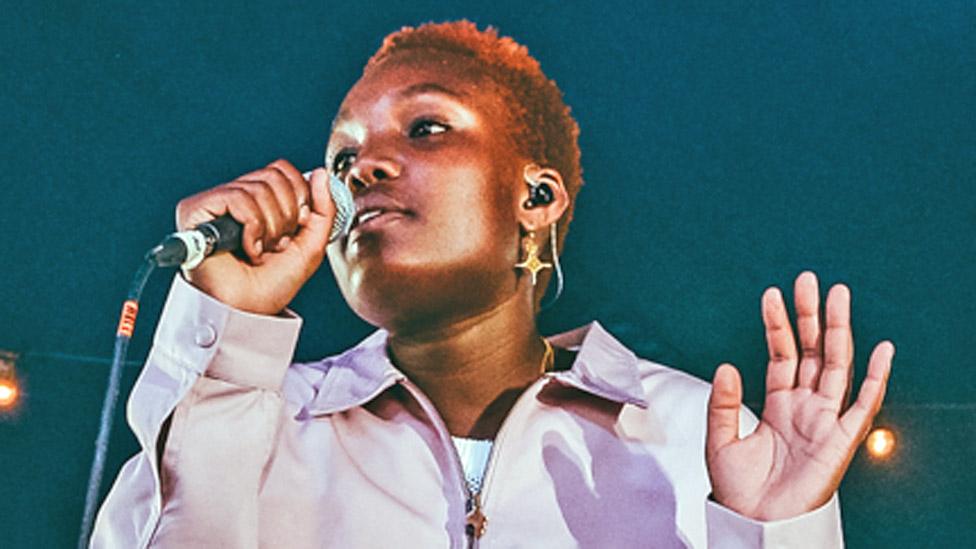Covid-19: The self-employed facing their income dry up
- Published
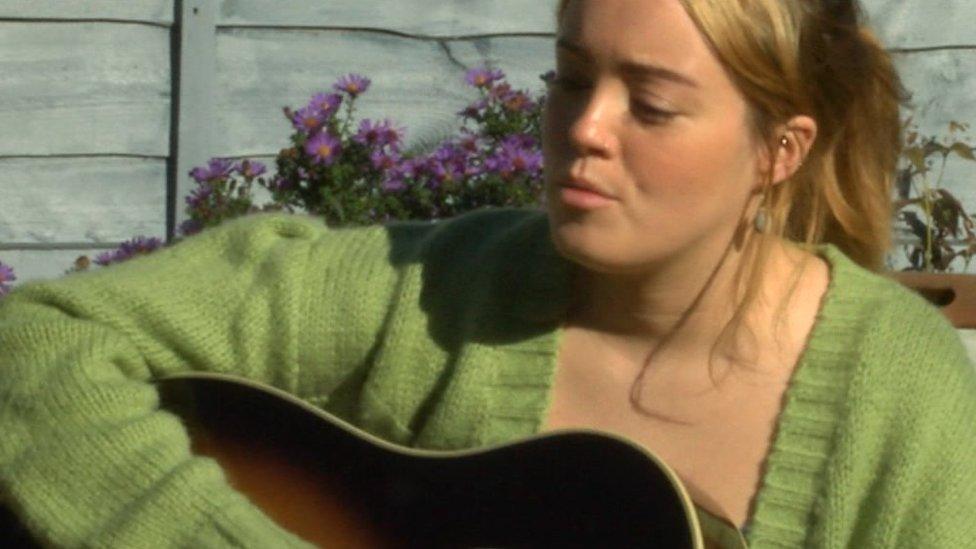
Elle Sunderland's career is on hold
What has it been like to see your source of income dry up during the pandemic? This is the reality for many freelancers and self-employed people.
The grassroots organisation set up to support them, Excluded UK, estimates about three million people have missed out on government help such as furlough or grants.
Elle Sunderland is one of many who say they have been left with little or no government support during the last six months.
She was about to embark on a music career when the pandemic struck.
"I had a few festivals lined up, a couple of weddings even, paid for a website design, paid for business cards, even bought a new PA system as well," she says.
"Little did I know I wasn't going to make that back."
Left without an income from her music and teaching people to sing face to face, Elle, from Riding Mill in Northumberland, says she feels her life has been left on hold.
"My anxiety was through the roof just not knowing what was going to happen, especially next year," she said. "I've been trying to save up to move out. I was going to do some travelling and do some singing abroad. I feel like I'm just stuck."

WEDDINGS: Can I have a reception with guests?
SOCIAL LIFE: The rules when I go to the pub?
LOCAL LOCKDOWNS: What happens if you have one?
FURLOUGH: What happens when the scheme ends?

As for the recent suggestion by Chancellor Rishi Sunak that people who cannot find work in their chosen field should consider retraining, Elle is sceptical.
"It could take a couple of years to re-train to do something else and I just don't have time for that. What do we do now?"
The government says, aside from the Job Retention Scheme, or furlough, it has protected nine million jobs and the incomes of 2.7 million self-employed people.
However, some freelancers, such as Elle, have not qualified for government help.
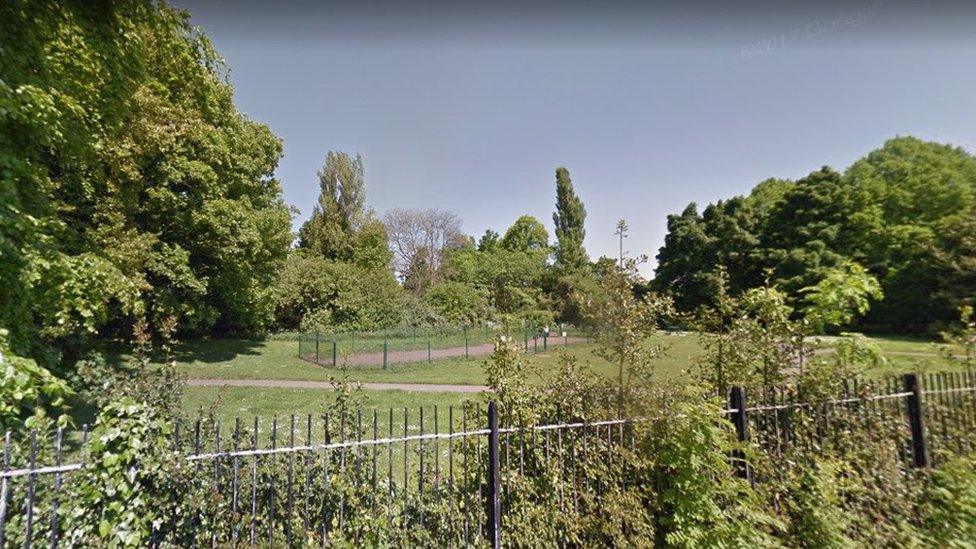
Outdoor socialising becomes harder as the weather gets colder
On a sunny October day in Heaton Park, in Newcastle, business is brisk for Amanda Simm's mobile coffee van.
But, for two months at the start of the pandemic, she had to close, leaving her struggling to stay afloat.
"If it had of lasted much longer I don't know what would have happened then," she says. "I borrowed money off family so, without family, we could really have been in the ditch."
Amanda did receive government support of more than £1,600 but says this did not match the earnings she was losing. "That only covered our bills and outgoings for say four weeks, so we really struggled on the second month," she says.
With the government considering new restrictions on areas like Newcastle with high levels of coronavirus, and the possibility that pubs, bars, restaurants and other hospitality venues could be closed for a period, Amanda is concerned.
"We don't know what's happening with the rules and regulations," she says. "It changes every day."

Follow BBC North East & Cumbria on Twitter, external, Facebook, external and Instagram, external. Send your story ideas to northeastandcumbria@bbc.co.uk, external.
- Published6 October 2020
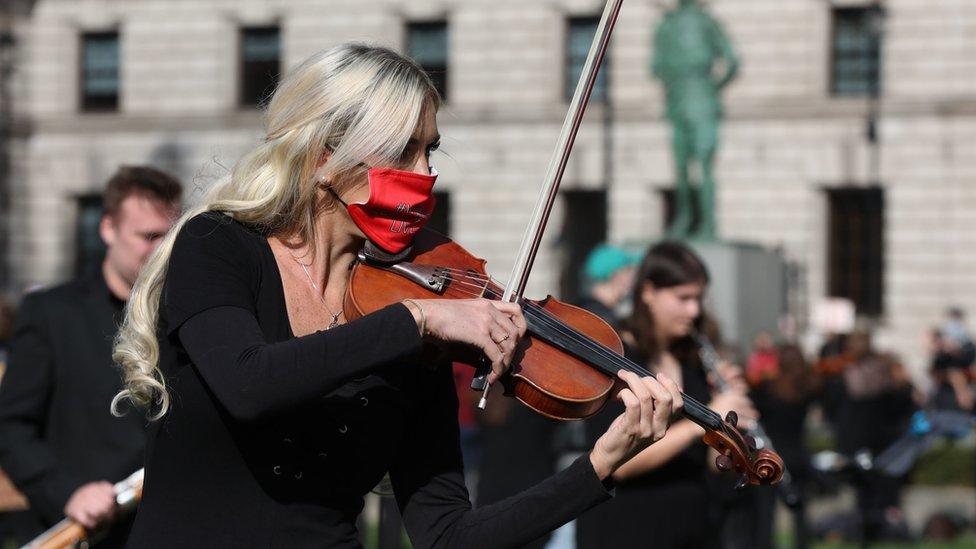
- Published3 March 2021

- Published19 September 2020
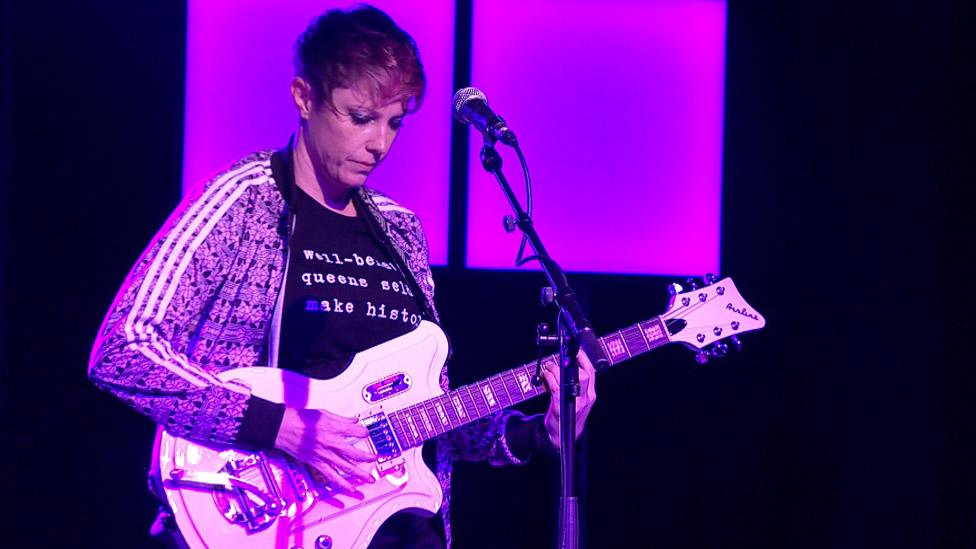
- Published10 September 2020
